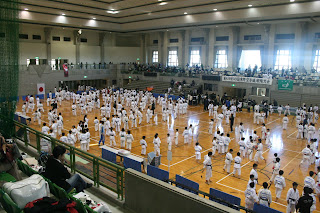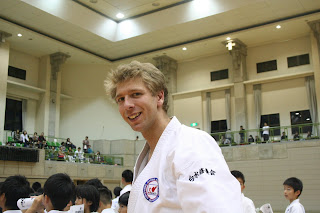
Peter Here,
I love Christmas. It's my favourite time of the year without any doubt, even though I am more of a warm weather person. But while Japan seems to be treating me well by not subjecting me to freezing weather as yet, I have been curious to find out how Japanese people and families celebrate this time of year, as they do have the festive day- but not the Christian historical background.
While eating together at the Flying Garden after training on Wednesday, I asked Arakawa Sensei and Suzuki Sensei how they spend their Christmas, and what they eat on the day. It turns out that Japan's Christmas is more focused on couples and young children than in the West, but they still love eating the Christmas chicken and Christmas Cake (Strawberry Sponge Cake to be precise). Some people have the occasional potatoes and some trimmings, but both Sensei looked a little taken back when I explained to them exactly *how* much a regular UK family chomps through on the big day (and subsequent days too). I also let them know that I wasn't a particular fan of Christmas Pudding (although I had to describe it as 'cake', as pudding is completely different here), because it was a little to rich for me. They assured me that the Japanese Christmas Cake is much nicer, so I look forward to trying that out!
So, the Japanese celebrate Christmas in purely a commercial form, but it is intriguing to see how similar it still is to the way we celebrate at home. I myself am 'agnostic' so Christmas doesn't hold any religious meaning for me. However, it must be said that the traditions brought over (the tree, decorations, big feast, giving of gifts) are more in line of the pagan winter festival than the traditions left out (carol services, Nativity plays, midnight mass, etc.).
One thing that can be said though- Japanese LOVE decorations. Some restaurants are already sparkling with tinsel, some houses are already ramping up their electricity bill with house lights, and generally the shops are all celebrating like they do in the UK; by trying to sell things!








































